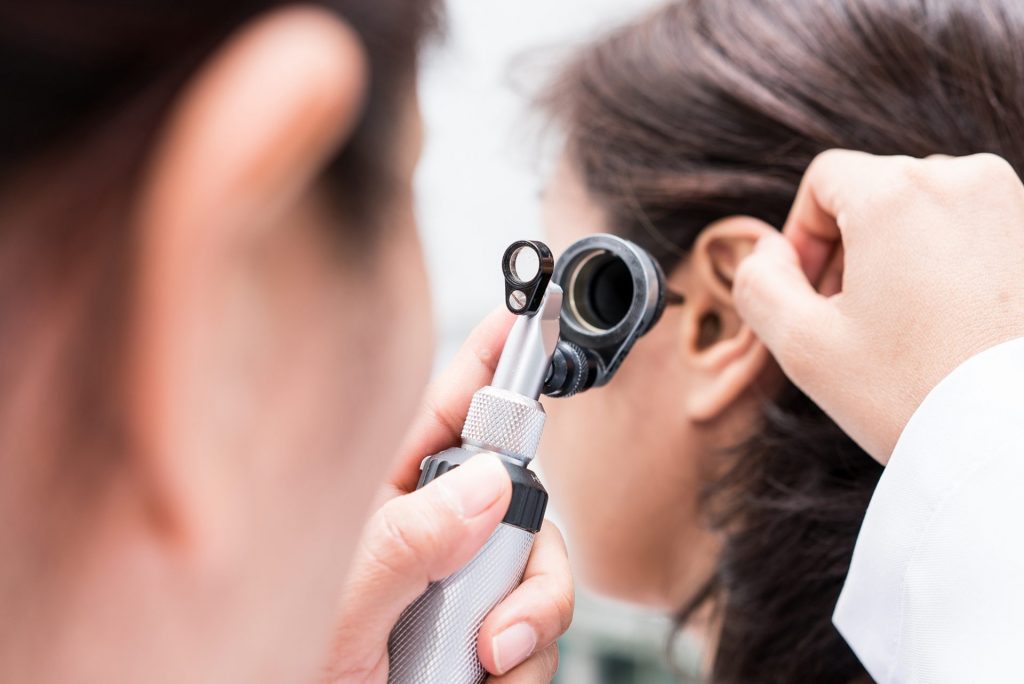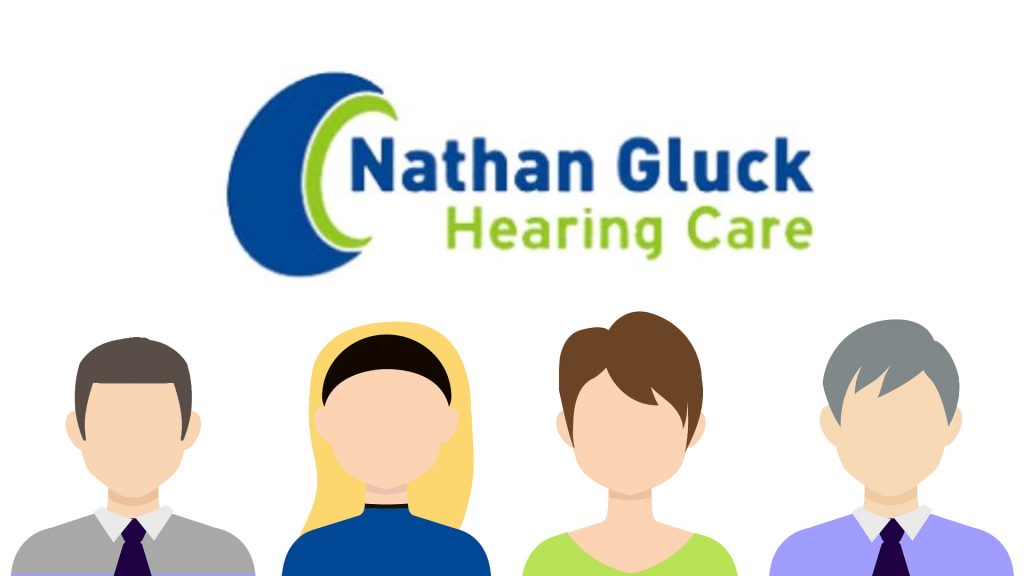Exploring the connection between depression and undiagnosed hearing loss
As we leave 2020 behind us and look forward to what will hopefully be a less turbulent 12 months in 2021, many of us are sticking to our new year’s resolutions to take better care of ourselves. Everyone has at some point made the resolution to get their bodies into shape, but what about taking care of our mental health?

As we leave 2020 behind us and look forward to what will hopefully be a less turbulent 12 months in 2021, many of us are sticking to our new year’s resolutions to take better care of ourselves. Everyone has at some point made the resolution to get their bodies into shape, but what about taking care of our mental health?
In the last decade the focus on mental health has shifted from a taboo and often misunderstood subject, to a facet of one’s health that is as openly discussed as having a cold. This bringing to light of mental health issues has undoubtedly improved or even saved the lives of many who would otherwise have suffered in silence.
Unfortunately however as with all things the new wave of thinking is carried mostly by the younger generations, with many older people still sticking by the British stiff upper lip. Where in many cases the “old way” of dealing with things is still perfectly acceptable, where mental health is concerned it puts those who stick by it at an increased risk of avoidable conditions. This combined with other age related issues brings us to the subject of today’s article:
How undiagnosed hearing loss can often lead to depression
Undiagnosed hearing loss is one of the hardest conditions to detect, and can have some of the worst ramifications. Not only can it lead to a mental health downturn in the holistic sense, but can also lead to serious medical conditions like dementia (read our article on the subject here).

The reason hearing loss is often hard to detect or even worse, ignored, is because it can often be mistaken for the effects of other completely natural circumstances, like getting older. For many, they see the downturn of their hearing as a natural process and are under the assumption that there is “nothing they can do about it”. This is not the case. All hearing loss is treatable to a degree, and for those suffering from depression, that degree might make all the difference.
Depression in hearing loss sufferers is far from uncommon, with a recent study finding that 11.4% of people surveyed with self admitted hearing loss showed or were diagnosed with depressive symptoms. This compared with the 5.9% margin found in those with perfect hearing shows a clear disproportion between the two communities.
How does hearing loss lead to depression?
This is a question we hear all the time as many an outsider might struggle to make the connection between a decline in hearing and a decline in mental health, but for a hearing loss sufferer, the connection is glaringly apparent.
One of the most important things we humans do to keep our minds occupied and spirits up is communicate with others. While there are those lucky few who are more than happy in their own company, the majority of us seek companionship at one point or another, and the act of conversation is the way we top up our need for social interaction. For hearing loss sufferers however this can be a source of great anguish and frustration.

As the ability to hear declines, so does the ability to keep up with others in conversation. Someone suffering with hearing loss may at first still be able to keep up with a line of discussion, but will often struggle to follow when it suddenly changes. We don’t realise it, but any normal chat might jump from football to the kids to the current state of American politics without any warning or major start and finish point in between. This leads those who can’t keep up to become confused, and even to withdraw from the conversation altogether.
Over time, and when this happens on enough occasions it is not uncommon for hearing loss sufferers to begin to remove themselves from social situations altogether to avoid the embarrassment of asking again and again what the group is talking about. Not only this, but someone who doesn’t realise they are struggling due to hearing loss may also develop a paranoia complex, thinking they are missing an inside joke or even that the others are discussing them secretly.
This removal from social interaction is a huge contributor to depression in many people, who may then begin to display signs of the mental health downturn. Loss or unease of sleep, irritability and anger issues are all cornerstone symptoms of someone suffering from depression, made all the more frustrating if they can’t even put their finger on what is causing it.

Luckily, hearing loss related depression is rarely a life sentence and with the help of both professionals and those around you the factors causing the mental downturn can be kerbed, and replaced by a healthy and supportive environment.
Treating depression caused by hearing loss
The first fix for any sufferer is to get their hearing back to health as quickly as possible, and to do this it’s important that you seek professional help in the form of a hearing test. Here at Nathan Gluck Hearing Care we always advise that the best defence against hearing loss is to stay on top of it, with regular hearing tests and consultations. Seeing an audiologist on a regular basis means that they will have a good understanding of your hearing, and so will notice if it worsens.

Should you be past the point of preventative measures and have noticed that you or someone you know is showing the signs both of struggling to hear, and depression, then it is vital that you book an appointment with an audiologist for the same day.
Depending on the level of hearing loss, your audiologist can recommend several treatments to coax your hearing back to health. While it is highly unlikely, the loss might simply be a severe and long untreated build up of earwax, which can be quickly removed with earwax microsuction. In the more likely case of an actual loss of hearing sensitivity you will be given the option of modern hearing aids.
Hearing aid technology has come along leaps and bounds in the last 2 decades, taking very much the same arc of development as smart phones and mobile headphones. These new devices can give you back the hearing that you have lost without impeding your normal daily life. This restoration of hearing along with counselling where needed is a proven method of reversing the depressive symptoms found in many hearing loss sufferers, giving a whole new lease of life to those who previously found themselves in a dark decline.

Who are Nathan Gluck Hearing Care?

Nathan Gluck Hearing Care is an independent practice of professional audiologists located in North London. We combine decades of experience with a strong mindset that the patient’s needs come first, every time. Whereas some may only be concerned with selling the service, we genuinely work our hardest to put the needs and health of our patients before anything else.
Our commitment to this ethos sees us staying open late into the evening, 6 or even 7 days a week, doing our best to offer same day hearing consultations and earwax removal appointments to those who need them. We also recognise that the need for healthy hearing may be stymied by someone being unable to leave the house, so we will bring our practice to you. Our at home hearing tests and earwax removal services have already proved a lifeline for many people living in the North London region.
Book your appointment today
If you or someone you know is in need of a professional audiologist then do not hesitate in booking an appointment with us today. If you live in or around the North London area we will do our best to offer you an appointment the same day as your booking. Whether it be for a hearing consultation or earwax removal, we’re here to get your hearing back to full strength, and get you out and about enjoying life once more.
You can find us in our Potters Bar practice on Thursdays, and Golders Green for the remainder of the week, including Saturday evenings and 8am-8pm on Sundays. Throughout the week if you live in the N, NW, HA, EN or WD postcodes then we can offer you our earwax removal and hearing consultation services in the comfort of your own home.
Book an appointment by clicking here or calling us on 0800 781 0422.

